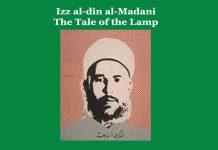R Tagore The Exercise Book | An Analytical Study
R Tagore The Exercise Book | An Analytical Study
R Tagore The Exercise Book | An Analytical Study
‘The Exercise Book’ by Rabindranath Tagore is a short story. It deals with the themes of contradiction between age-long prejudice against female education and new progressive thought of equality in educational opportunities for women. Along with this theme, the theme of child marriage is also juxtaposed in the story.
The protagonist of the short story is a little girl named Uma. As a child, she was an exception as she had a chance to attend school. But as soon as she learnt to write, she became a nuisance in the eyes of others. She took to scribble on every wall of their house. She would draw unnecessary lines with a piece of coal and she wrote the rhyme: ‘Raindrops on treetops’. With huge scrawled letters, she obliterated most of the auspicious dates in the new almanac kept for household use. Right in the middle of the credits column in her father’s account book, she wrote:
”He who writes and studies hard
Will one day ride a horse and cart.”
Uma had a brother named Gobindalal who occasionally wrote essays on physiology. One day she took out her brother’s pen and ink and scribbled on an essay written by her brother. When her brother came to see her wickedness, he became angry and confiscated her store of writing implements — a stubby pencil, a blunt ink-pot and a stained pen. The humiliated little girl, unable to fully understand the reason for so severe a punishment, sat in a corner of the room and cried.
After the period of discipline was over, Gobindalal returned Uma’s looted property and tried to assuage her by presenting her with a bound-rolled stout exercise book. Uma was then seven years old. From that day on, that exercise book was with her almost all the time. At night she put that under her pillow and during the day she carried the book with her to the village girl’s school. The sight of it arouses wonder in some of the girls and greed and envy in others.
In the first year, she wrote carefully in her exercise book the rhyme, “The birds sing, the night is past”. She would sit on the floor of her bedroom clutching the exercise book and write, read and declaim loudly in a sing-song voice. In this way, she collected many lines of prose and poetry.
In the second year, a few independent compositions began to make their appearance in her exercise book. They were very brief but extremely pregnant, lacking both an introduction and a conclusion. On it, she had copied out of the tale of the tiger and heron from Kathamala. Between the lines, she sometimes wrote some independent sentences which had not been in any book. For example: ‘I love Jashi very much.’
Thus the Exercise Book presented by her brother Gobindalal bears great significance for little Uma. For Uma, it is not only a notebook but it was a medium to evolve and express her own emotion and feeling. It symbolizes her struggle to come out of the age-long prejudice against woman’s education. In other words to say it is a token of revolt against inequality between boys and girls in enjoying opportunities to learn reading and writing.
Secondly, the author depicted the theme of child marriage in the story and along with it, the author had given a peep towards the outlook of others on woman’s education. Uma, as a social custom, became a victim of child marriage at the age of nine. She was married to Pyarimohan, one of Gobindalal’s literary associates. Although he was not so old and had received some education, his mind had remained entirely closed to new ways of thought. For this reason, he was highly regarded by his neighbours and Gobindalal tried to follow his example though without complete success.
When Uma set out for her husband’s house, her mother told her. ”Listen to your mother-in-law, darling, attend to the household, don’t spend all time reading and writing.” Her elder brother Gobindalal told her, ‘Remember not to scratch letters on the walls.” He also warned her not to scribble on any of Pyarimohan’s writings.
Jashi went with Uma to stay for a few days to settle Uma in the new house. Jashi took Uma’s exercise book along with her to the new home. The book was a part of Uma’s paternal house, a loving reminder of her brief stay in the house. It brought a savour of tender freedom to the little girl in the midst of her premature wifeliness.
During the first few days, Uma wrote nothing in her exercise book. She had no time. At length, some days later, Jashi returned to her former residence. That day Uma shut the door of her bedroom in the afternoon, took the exercise book out of her tin box and wrote tearfully in it: ”Joshi had gone home, I want to go back to Mother too.”
Uma no longer had the leisure to copy anything out of Charupath or the Bodhodoy. After some days she wrote in her exercise book, ”If Dada comes to take me home just once, I’ll never spoil his writings again.” Uma’s father often wanted to bring Uma home, but Gobindalal teamed up with Pyarimohan to frustrate these plans. He said that it was time for Uma to learn devotion to her husband. Having heard people say this, Uma wrote in her exercise book, ”Dad, I beg of you, take me home just once. I’ll never make you angry again.”
One day Uma shut the door and was writing some meaningless triviality in her exercise book. In the meantime, her sister-in-law Tilakmajari became exceedingly curious and took a peep through the crack of the door. Then her younger sister Kanamanjari and the still younger Anangamanjari came and had a peep through the crack. Suddenly they burst into laughter. As she was writing, Uma suddenly heard the laughter of three familiar voices outside the room. She realized what was happened. She hastily closed the exercise book and hid her face on the bed in shame.
When Uma’s husband Pyarimohan heard this, he got much disturbed. He thought if women began to read and write novels and plays, then it would be very hard to uphold household virtues.
Therefore Uma’s husband Pyarimohan, by special reflection evolved an exceedingly subtle theory. He said that the power of the female and the power of the male together produced the sacred power of conjugal relationship, but if the power of the female was vanquished through education and study, the power of the male alone would be paramount. The male power would clash with male power to produce so terrible a destructive energy that the power of the conjugal bond would be completely destroyed.
For many days after that, Uma wrote nothing in her exercise book. But one day, on an autumn morning, a beggar woman was singing an Agamani (advent of Durga Devi) song outside. Uma sat listening to the song silently at the window resting her face on the bar. Uma could not sing but since her learning to write, she has developed the habit of writing down any song she heard to lessen the pain of not being able to sing it. The beggar woman sang:
”The folk of the city say to Uma’s mother:
‘Your lost light has returned.’
At this, half-crazed, the queen rushes out
Where are you, Uma, where are you!
……………….
Why did not you come to fetch your daughter?”
Hearing the song, Uma’s heart welled up, her eyes filled with tears. She called the singer secretly to her room, shut the door and began to write down the song in her eccentric spelling. In the meantime, her sisters-in-laws observed everything through the crack of the door and suddenly burst out, clapping their hands and then said, ‘Boudidi we’ve seen what you’re doing!
Uma quickly unfastened the door, came out and began to plead with them, ‘Darling sisters, please don’t tell anybody, I beg you, please don’t, I’ll never do it again. I’ll never write again –.” Tilakmanjari went to summon her brother, Pyarimohan. He came in and sat down grimly on the bed. He said in a voice like thunder, ‘Give me the exercise book.’ Seeing that his command was not obeyed, he lowered his voice a couple of notes and said, ‘Give it to me.’
The little girl clapped the exercise book to her chest and directed a glance of utter supplication at her husband’s face. But when Pyarimohan was getting up to snatch the book from her, she flung it down, covered her face with her hands and collapsed on the floor.
After that day, Uma never got back her exercise book.
Thus the author of the short story has made a vivid portrayal of child marriage. He shows Uma’s eagerness to read and write and thus the story bears the strong reformist plea for greater equality in educational opportunities for men and women. 0 0 0
R Tagore The Exercise Book
Read More: Premchand’s ‘Deliverance’: An Analytical Study
N. B. This article entitled ‘R Tagore’s Story ‘The Exercise Book An Analytical Study’ originally belongs to the book ‘World Short Story Criticism‘ by Menonim Menonimus. R Tagore The Exercise Book
Books of Literary Criticism by M. Menonimus:
- World Short Story Criticism
- World Poetry Criticism
- World Drama Criticism
- World Novel Criticism
- World Essay Criticism
- Indian English Poetry Criticism
- Indian English Poets and Poetry Chief Features
- Emily Dickinson’s Poetry-A Thematic Study
- Walt Whitman’s Poetry-A Thematic Study
- Critical Essays on English Poetry
- Tawfiq al-Hakim’s Novel: Return of the Spirit-An Analytical Study
- Tawfiq al-Hakim’s Novel: ‘Yawmiyyat Naib Fil Arayaf’-An Analytical Study
- Analytical Studies of Some Arabic Short Stories
- A Brief History of Arabic Literature: Pre-Islamic Period …
Books on Linguistics by M. Menonimus:
- A Brief History of the English Language
- Essays on Linguistics
- My Imageries
- Felicitous Expression: Some Examples
- Learners’ English Dictionary
Related Searches:
- Short Stroy Criticism
- The Indian English Short Story
- Individual and Society …
- ‘Deliverance’ by Premchand Analysis
- ‘Deliverance’ by Premchand Summary and Analysis
- ‘Deliverance’ a Short Story by Munshi Premchand
- Deliverance Character List
- Summary of Rabindranath Tagore’s ‘The Exercise Book
- Exercise Book …











